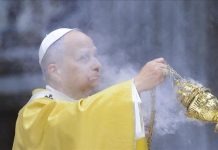Africa-Press – Mauritius. A little successful operation than the somewhat unexpected one of making public the declaration of the assets of the representatives of the people in Parliament. A necessary requirement in the democratic exercise of good governance.
The latter promotes transparency while combating any attempt at corruption and personal enrichment by abusing the political power conferred by a mandate granted by the voters.
In developed countries, justice ensures that elected officials cannot allow themselves abuses that place them above the law, and that public funds are used in full transparency for the common well-being and the progress of a country.
The temptation to embezzle funds or charge large commissions exists with some, but once caught in the net of justice, they are unlikely to escape unscathed. The severity of the law obliges both to perform their duties in the public interest.
A principle which, for decades, has been seriously lacking in the so-called developing and underdeveloped countries, and which has deprived their people of a modern public infrastructure, an adequate level of education and living conditions. decent living while fattening a clique close to power with impunity in certain regions.
Here, under the pretext of putting down the unhealthy voyeurism of the public, the official discourse has authorized itself an originality in the matter: that of revealing goods and assets according to the terms established by themselves, and therefore, above the law.
… Governing the assets and bank accounts of members of the public. All the difficulty of breaking out of a culture of secrecy!
In the absence of a real desire to inform the public of the state of their finances and acquired assets, the exercise of ‘transparency’ aims to appease minds and the press, and therefore to ensure their own peace of mind.
of spirit. A semblance of a declaration? In the end, politicians of all stripes come to terms with this charade because there would be too many skeletons in the closets.
So, in a possible alliance in the future (where they are all interchangeable), it would be better to calm the ardor of transparency and be silent. To follow up on the news, a few pointless interviews that brought nothing to the public if it was not a futile attempt for some to carve out an image of Mr.
Clean. Penalty lost if no question about the cost and source of funds for the acquisition of property or an apartment abroad is not asked. It makes you wonder if behind the scenes of the press is being woven a network of influence to polish the public image of a few politicians selected for obscure reasons, with the aim of facilitating promotion within their party, and meet their long-term political ambition.
It all gets crisp when the good people who don’t have their tongues in their pockets recall that in the past some dragged their feet in shorts and spongebob bags, and that thanks to “our crosses” on the ballot paper, they now ride in BMWs.
Individuals likely to use their influence in the country or during a mission abroad to promote a project other than the general interest, and whose capacity for harm would be wrong to underestimate are to be avoided as the deadly coronavirus.
In the family of the well-off thanks to the drug trade, who are the godfathers? The opacity inherent in the culture of secrecy is a national calamity.
That the police do not have all the freedom to carry out investigations is an idea as widespread as that of the rascals in their ranks and people from the political world who are involved in this illicit trade.
Apart from the small fish that fall into the nets of the ADSU and the border police, an iron curtain on the bigwigs. Protected by whom? State secret, secret of the lobbies.
Until when ? Meanwhile, the devastation continues on the physical and mental health of many young people. No news on the sponsors of the imported drugs.
No transparency, for example, on the activities of those accused of manufacturing suspicious powder in a laboratory in a village in the north of the country.
The police had retracted, it seems. What was it really? Like the ICAC, the sums swallowed up by the Lam Shang Leen commission are taken from the public purse.
For what result? It is as if some senior officials have their hands tied and blindfolded in this country, and the people have grown used to looking away.
Given the dangerousness of this scourge which plagues society, the ineffectiveness of the fight against drugs is nevertheless dramatic, and undermines public morale.
An open strand on the intention to promote new technologies and science was expected in the presidential speech. An oversight? We remain in total vagueness as to the opportunities in these fields for young graduates passionate about innovative technology.
The need to recognize their potential, ambition and the desire to contribute, through their know-how, to the technological progress of society. The recognition of their competence within companies where seniority often has a bad tendency to ignore the solutions provided by young graduates, where the former jealously, and wrongly, grant themselves the privilege of the last word.
A whole state of mind to change to recognize the value they have in everyone, and to stop stifling talents with a paternalistic and condescending attitude.
How is it that in developed countries foreigners manage to achieve their ambition, and their value is recognized, and ultimately, they are much more fulfilled professionally? The outlines of this Youth Empowerment Program ’remain to be defined.
It would be helpful if the television could offer screen space to young people who are eager to speak out about innovative technology and science that interest them and should be promoted. This is to avoid frustration, allow them to come up with a research plan and create the right conditions for their career development.
For More News And Analysis About Mauritius Follow Africa-Press







